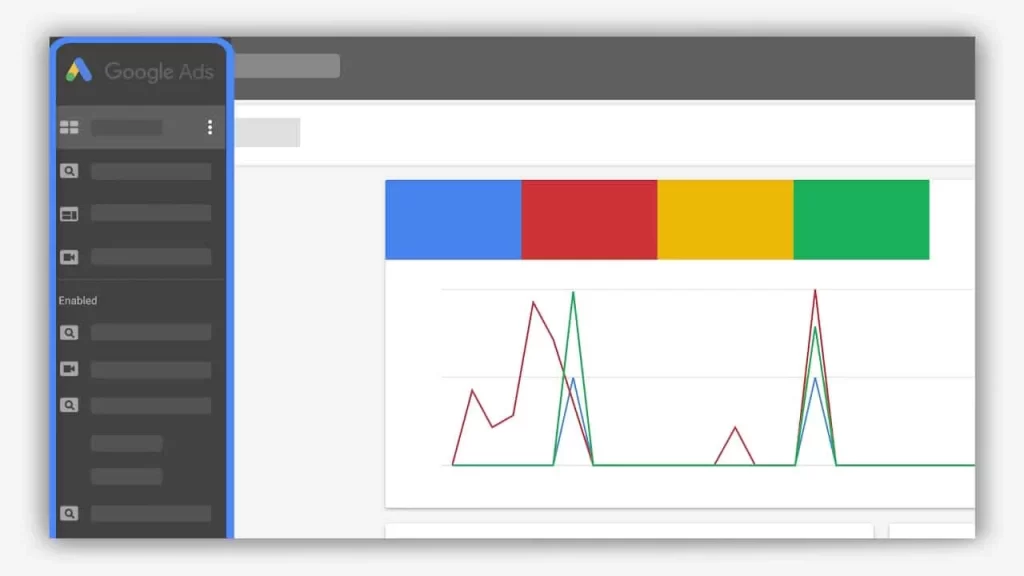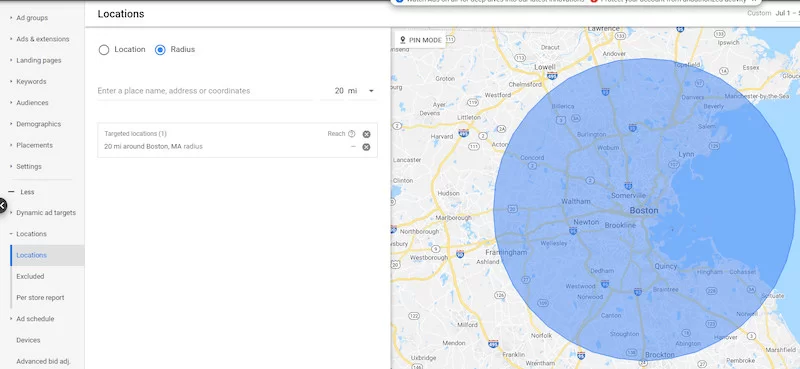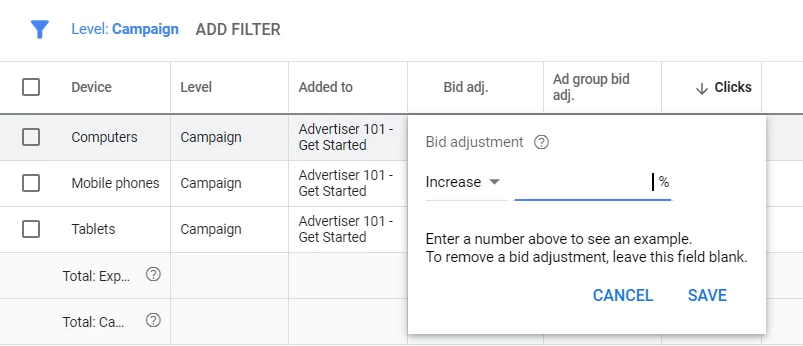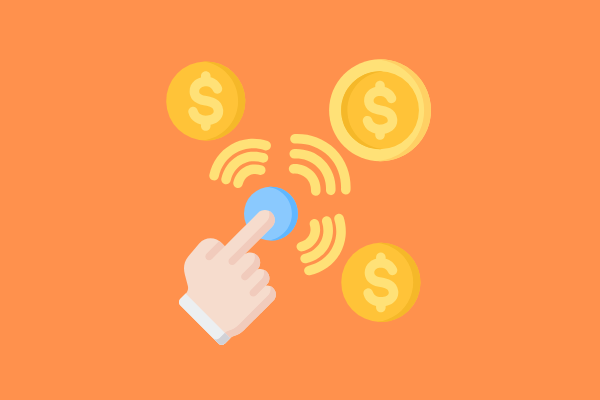Last Updated on 3 months by Gülenber Han
The answer to the question of how much Google Ads cost is important for your business. Today, you must stand out from the crowd if you want to get seen online. For this, google ads pricing should be known. The pay-to-play method has become the norm if you want to garner the maximum attention for your products and services. Organic postings on networks like Facebook and Instagram have dropped to as low as 5.2 percent. Your business will often be disregarded in internet search results if you don’t have a robust advertising plan in place, such as Google Ads pay-per-click marketing. The good news is that, when done correctly, Google Ads can be a very profitable advertising campaign. But for this to work properly, you should work with a Digital Marketing Agency. Moreover, in this way, you can get the answer to the question of how much are google ads.
What is Google Ads?
Before moving on to the question of how much Google Ads cost, you should know what Google Ads is. Google Ads is the new name for Google’s advertising services, which are available on Google.com as well as other Google domains, partner sites, and applications. These services are intended to help companies and marketers interact with billions of individuals who are searching for answers on Google, watching movies on YouTube, discovering new places on Google Maps, reading content throughout the web, and more. The new Google Advertisements brand and solution will assist businesses of all sizes in selecting the best solutions for their needs, making it even easier to deliver valuable, trustworthy ads and provide the greatest experiences for current and future consumers.
The nicest thing about Google PPC is that you only pay when someone clicks on your ad. You only pay when someone clicks and visits your website, regardless of how many times it’s displayed or how many people view it. On a campaign-by-campaign basis, you may also define daily and monthly budgets. So, if you’ve found a successful keyword to bid on and a winning ad to run, you can relax knowing that your campaign won’t go over budget.
How does Google Ads work?

Another question as important as how much Google Ads cost is how Google Ads works. Understanding how Google Ads works is critical for determining how much Google Ads costs. Because the architecture of Google’s auction system affects your Google Ads cost, knowing how it works will help you set a reasonable budget for your campaigns. Both ad placement and Google Ads pricing are determined by an auction approach in Google Ads. When a person searches for anything on Google, an ad auction occurs. Eligible advertisements go to an auction if the search query matches keywords that advertisers are currently bidding on. Ad placement and cost per click are decided by an advertisement’s Ad Rank inside the auction. Your ad’s ad rank is determined by two factors: your maximum bid for that specific keyword and the quality score of your ad.
The PPC is used by Google Ads. Marketers target a certain term on Google and place bids on it, competing with other marketers who are also targeting the phrase. Your bids are maximum bids. If your maximum bid is $4 and Google finds that your cost per click is $2, you will be given that ad spot. You’ll never spend more than a certain amount every day on that ad, which can help you figure out how much to invest in your digital ad campaign.
How much does Google Ads cost?
Now that you know what Google Ads is, you can also learn the answer to the question of how much are google ads. While companies spend an average of $9000 to $10,000 per month on paid advertising, the answer to the question, “How much do Google Ads cost?” isn’t one-size-fits-all. Because Google Ads is a fully configurable ad platform, this is the case. You have complete control over how much you spend and when you spend it, as well as the ability to boost or decrease your ad spend in real time. One of the main advantages of Google Ads is its price flexibility. Even though most businesses spend $9000 to $10,000 a month on Google Ads, they spend it in a variety of ways. Google ads pricing is influenced by factors such as their industry, goods, services, and competition.
The Google Ads auction
Google ads pricing is based on a bidding structure that occurs every time a user conducts a keyword search. You’ll need to maximize your Quality Score and bid amount to “win” the Google Ads auctions and have your Google ads appear for relevant keywords. Your ad will be better positioned if your Quality Score is higher than your bid amount.
Ad Rank
Google will multiply your Quality Score by the highest sum you’re ready to spend. This determines your Ad Ranking, or where your ad will show on the results page. So: Ad rank = Quality Score (out of 10) x Maximum CPC.
Google, on the other hand, will figure out how much you’ll have to pay: Ad rank of the person below/Quality Score + £0.01 = Cost
If your Quality Score is 6 (about average) and the Ad Rank of the following bidder is 15, the calculation is: (15/6) + £0.01 = £2.51
Additional variables in the Google Ads auction
Several additional factors influence your Ad Rank—and Google ads pricing —but the maximum bid and Quality Score are the most critical to understand. The following are some of the other criteria that affect your Ad Rank:
- Relevance of the advertisement
- Relevance and experience with landing pages
- Quality at auction
- Users’ search devices, locations, and context
- Methods of alternative bidding
- A variety of ad types
How does my Google Ads budget get spent?
Another question that is as curious as to how much Google Ads is how my Google Ads budget gets spent. A typical occurrence for many new Google Ads customers is that their ad budget gets depleted faster than they had planned. It’s not just unpleasant to watch your monthly budget burn through in a couple of days; it’s also what leads many businesses to assume that Google ads pricing is too expensive. This isn’t always the case; in most cases, a misunderstanding of how Google Ads budgeting works is at blame.
Starting your Google Ads budget
You may conceive of your Google Ads budget in the same way you think of any other budget. You can start with a basic amount that will cover most of your budget. Then you can add extra leeway in case conditions change or something unexpected happens. Google ADS pricing on a per-campaign basis is a good place to start when it comes to Google Ads budgeting.
Daily budgets
A daily budget is used by Google ads pricing. The daily budget is the amount of money you’re willing to spend on adverts each day. You may create an average daily budget on Google and update it at any moment. The good news is that Google can assist you in optimizing your ad campaign so that you receive more clicks on days when your search traffic is greater or when your ad returns are expected to be higher. As a result, the amount of money you spend on Google ads pricing may fluctuate. You may not, however, spend more than your daily allocation on Google Ads.
Advertisers may determine their daily budget using two tools provided by Google Ads. The performance planner and the cost-per-click are the first two (CPC). The budget planner assists you in optimizing your budgets across all of your existing campaigns. The cost-per-click, on the other hand, allows you to choose the maximum amount you’re willing to spend for a click on your advertisement.
How do daily budgets get spent?
Since you have learned how much are google ads, you should also know the answer to the question of how daily budgets get spent. The average daily budget you establish for each ad campaign is your average daily budget. It indicates how much you’re willing to spend daily over a month. Google will optimize your Google ads pricing for days of the month when you’re more likely to obtain clicks and conversions, such as when search traffic is greater or when we forecast a better return on investment for your advertisements. This means that you may not meet your average daily budget on certain days and may surpass it on others.
You set an average daily budget for each campaign in Google Ads depending on your advertising goals and the amount you’re comfortable spending each day.
Let’s imagine you regularly spend $304 on advertising each month. To calculate your average daily budget, divide USD 304 by 30.4 (the average number of days in a month – 365/12) to arrive at a USD 10 amount. Here’s how you’d calculate your average daily budget using this example:
304/30.4 = $ 10 USD each day
You may also make shared budgets, which allow you to set a budget for numerous campaigns at the same time.
What other factors influence my Google Ads to spend?
Another question that is as curious as how much are google ads is, what affects Google Ads spending. When considering the cost of Google Ads, it’s crucial to keep in mind that the Google Ads pricing campaigns are influenced by several factors. As a result, the question of how much are google ads has no straight answer. You’ll need to conduct some research in your niche to determine the going Google ads pricing per click. The most important factor affecting the cost of a Google ad is the Google Ads auction. You should first evaluate how much your competitors are willing to pay per click for the same keywords. Then you have to decide if you want to bid higher. Some elements determine how your money is spent, just as there are ones that influence your Quality Score, which influences your Ad Rank, which affects your cost per click.
Dayparting
With the All features setting enabled, run campaigns. You can then create a timetable that works best for you, whether it’s when you’re at work taking calls or when people have free time to go shopping. This is especially effective for small companies who wish to leverage their marketing to drive people to a real location. For example, if you own a bakery that shuts at 7 p.m., you might not want your advertisements to appear outside of those hours. Alternatively, you may have your adverts run continuously throughout the day while allocating a larger amount of your daily budget to hours when you want more exposure.
Geotargeting

You may limit your campaigns to just appearing to people in a certain geographic area, which is a tool that is sometimes ignored. Geotargeting allows you to show your advertising to people who are searching in certain locations. Geotargeting in Google Ads may be a great method to leverage today’s consumers’ expanding mobile traffic patterns and on-the-go buying habits, and it may play a role in how you spend your daily ad budget. You could want your advertisements to show alongside relevant searches in a given state, but you could also spend extra money on searches in a specific city or even neighborhood.
Device targeting

Users used to search only using desktop browsers. This is because computers and cell phones were not widely used at the time. Mobile phones may now be found almost anywhere. There are 3.8 billion smartphone users globally, according to Statista. As a result, consumers are using their mobile phones to conduct more searches. If your target audience is more likely to utilize mobile phones, you’ll need to allocate a larger budget to mobile devices than to desktop or tablet devices. Google ads pricing will be squandered if your adverts are shown to the wrong device users. The device’s average CPC is shown below.
How much do businesses spend on Google Ads?
Almost every Google Ads Agency has a strategy. Generally, it proposes starting budgets ranging from $1,000 to $10,000 per month, depending on the client, sector, objectives, and areas targeted. The bigger your initial budget should be, the more ready you are to create and improve Google Ads campaigns. If you’re just getting started with your business and haven’t utilized Google Ads previously, you should start with a minimal budget that still allows you to compete. Consider increasing your budget if you have any Adwords expertise. You’ll receive the clicks you want as you increase your spending, and with that comes more data to work with.
Why advertise on Google Ads?
While Google ads pricing varies and is greatly dependent on your company, sector, strategy, and competition, the platform provides a wealth of benefits. If you’re on the fence about starting with Google Ads, this analysis of Google Ads perks may be of assistance. There are three reasons why businesses invest in Google Ads.
When it comes to financial control, Google Ads blows most other advertising channels out of the water. To open a Google Ads account or execute a Google Ads campaign, there is no minimum investment necessary. If you wanted to, you could start a test campaign with a $5/day budget. Your results will, once again, be determined by how competitive the topic and keywords you choose are, but the idea is that you can adjust your spending as needed.
With Google Ads, everything you do is in real time. That means you may scale up as soon as a successful campaign is found, or scale down as soon as a campaign begins to underperform. You’re not obligated to sign a contract, spend a certain amount every month, or anything like that. With Google Ads, the potential for expansion is truly limitless.
With Google Ads, you have complete control over every detail of your campaign’s success. You can view how many times your ad was displayed, how many people clicked on it, how many people converted after clicking on it, when the time of day your ad was most effective, statistics on the kind of users who clicked on it, and more. The amount of information accessible in your Google Ads dashboard is mind-boggling. This contrasts sharply with the vagueness of other forms of advertising. Traditional advertising, such as television, radio, and newspapers, has fairly limited analytics. Because of them, you don’t know how many people view your advertising or take action as a result of them, you don’t know how effective your campaigns are.










